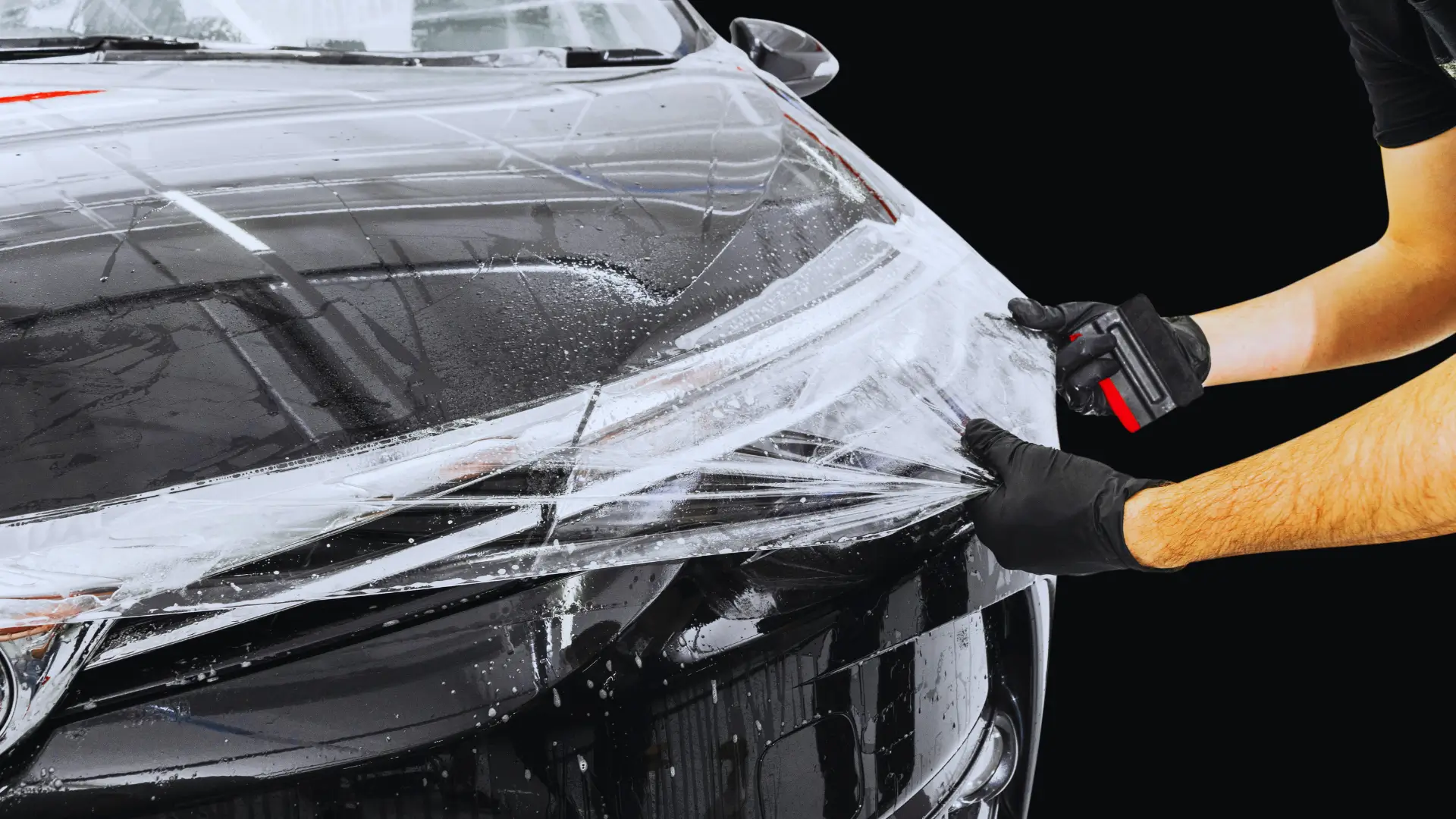Applied by certified professionals, paint protection film (PPF) adds a nearly invisible, durable layer of defense to your car’s finish. Whether applied over factory paint or a vinyl wrap, PPF shields your vehicle from rock chips, road debris, UV rays, and harsh Toronto winters. At Toronto Car Wrap, we use premium 3M™ Scotchgard™ and Avery Dennison® Supreme Protection Film for maximum clarity, gloss, and longevity. Below are the top five reasons PPF wraps are a smart investment for car owners in Toronto and across the GTA.
1. PPF Wraps Shield Your Vehicle From Road Debris
Absorbs Impact From Rocks & Gravel
PPF acts as a sacrificial layer that absorbs impacts from gravel, small stones, and other debris before they can chip your paint. This preserves your vehicle’s factory finish or vinyl wrap underneath.
Durable Polyurethane Armour
Made from tough polyurethane, paint protection film takes the beating so your car’s panels don’t have to. It’s essentially a clear armour wrap that prevents microdamage from daily driving.
Perfect For Toronto Roads
With constant construction and winter road maintenance, Toronto streets expose vehicles to sand and salt debris. PPF ensures these materials strike a protective layer, not your paint.
2. PPF Wraps Protect Against UV Rays, Pollution, and Corrosion
Blocks Harmful UV Rays
PPF prevents UV light from breaking down clear coat and paint pigments, protecting against dulling and fading.
Resists Environmental Contaminants
From bird droppings to tree sap, acid rain, and road tar, paint protection film resists staining and etching, preserving your paint’s clarity.
Prevents Rust and Corrosion
PPF creates a tight seal that prevents road salt and moisture from penetrating chipped areas, reducing the risk of rust in harsh GTA winters.
3. PPF Has Self-Healing Properties For a Flawless Finish
Heat Activated Self-Healing Surface
Minor swirl marks and fine scratches vanish when exposed to mild heat from the sun, engine warmth, or a heat gun.
Advanced 3M and Avery Dennison Technology
Premium PPF products use elastomer polymers that “reflow” when heated, restoring a smooth finish automatically.
Long Term Gloss Retention
Because of its self-healing composition, paint protection film maintains its glossy, showroom look for years with minimal effort.
4. Invisible Protection with Easy Cleaning And Maintenance
Crystal Clear Transparency
High-quality films provide a completely transparent finish that lets your original paint or vinyl wrap shine through – available in both high-gloss and matte options.
Anti-Yellowing Technology
Premium 3M and Avery Dennison films resist yellowing and cloudiness even after years of sun exposure.
Hydrophobic, Easy-to-Clean Surface
The film’s slick, non-porous topcoat repels dirt, tar, and bugs, making washing easier and helping your vehicle stay cleaner longer.
No Special Maintenance Required
Simply wash and wax as usual, no special products or treatments needed.
5. PPF Preserves Your Vehicle’s Long-Term Value
Durable, Long-Lasting Protection
High-grade PPF from 3M and Avery Dennison lasts up to 10 years and comes with manufacturer warranties to match.
Saves on Paint Repairs
By preventing scratches, chips, and fading, you avoid costly bodywork and maintain a near-perfect finish..
Enhances Resale or Lease Return Value
Factory paint protected with PPF commands higher resale prices and fewer deductions at lease return.
Prevents Expensive Bodywork Down The Road
While there is an upfront cost for a professional PPF installation, it’s a cost-effective choice in the long run. The film prevents damage that could lead to expensive bodywork or repainting down the road.
Easy Professional Removal
When it’s time to remove, professional technicians can peel off the film cleanly, revealing paint that looks factory-new.
Can You Combine PPF with Vinyl Wraps or Ceramic Coating?
Paint protection film isn’t just for factory-painted cars. It’s a perfect companion to vinyl colour wraps and even ceramic coatings. If you’ve invested in a custom vinyl wrap, adding PPF on top of high-impact areas can keep that wrap looking fresh by preventing rips or abrasions.
Extra Protection Foe Vinyl Wraps
PPF enhances vinyl wraps by shielding high-impact zones such as bumpers and hoods from stone chips and scratches.
Compatible With Ceramic Coatings
When layered with ceramic coating, PPF becomes even more hydrophobic and stain-resistant, combining physical and chemical protection.
Style + Defense in One Package
By pairing a vinyl wrap for visual appeal with PPF for durability, you achieve a stylish yet resilient exterior that withstands Toronto’s climate.
Trust Toronto Car Wrap For Premium Installation
Toronto Car Wrap is a certified installer of 3M™ and Avery Dennison® paint protection films. Our team prepares, cuts, and applies every film using precision templates in a dust-free environment for a flawless finish. We ensure maximum durability, transparency, and protection across the GTA.
